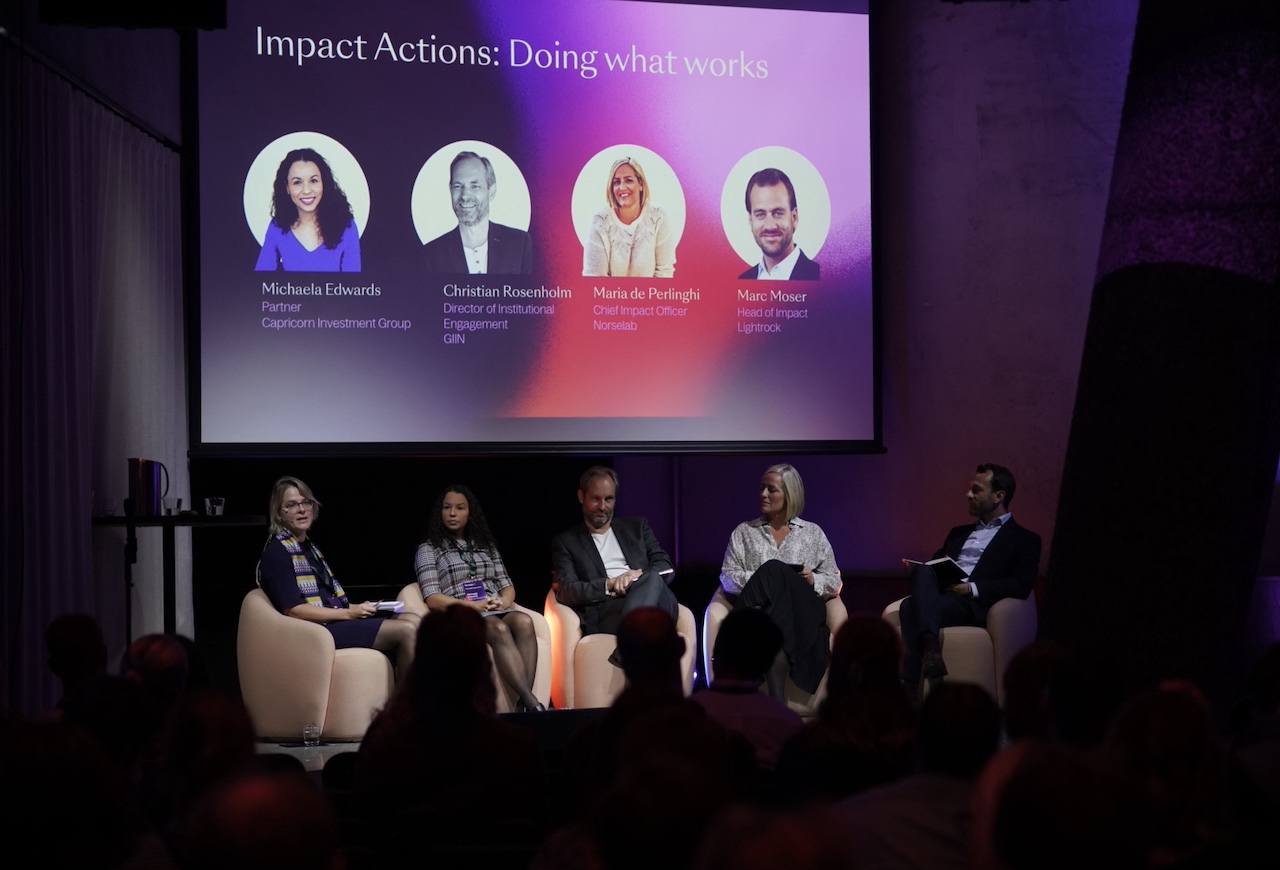More than 200 impact managers, private and public impact investors and mission driven startups hear from peers about the challenges and opportunities for impact investing in the Nordics and globally.

This week’s Oslo Innovation Week, an annual event which showcases Norwegian and international incubators, investors, and startup ecosystem builders, saw the launch of the first full day dedicated to impact investing.
Hosted by impact investors Norselab on Thursday, the event drew in a mix of more than 200 impact managers, private and public impact investors as well as mission driven startups, and kicked-off with a panel discussion moderated by Impact Investor focusing on the actions needed to create impact and drive progress in the SDGs as well as those to avoid.
The speakers agreed that although not created with impact investors in mind, the SDGs were useful for having provided a common language to speak about the impact needed to address today’s most pressing societal and environmental challenges and galvanise investment but that it was important to recognise their limitations.
“The SDGs weren’t established as an investment framework, but they have helped to mainstream what impact investing is and to facilitate an understanding of the areas that impact investors focus on,” said Michaela Edwards, partner at Capricorn Investment Group, a US-based impact focused OCIO (Outsourced Chief Investment Officer) firm. “But it is important to remember that impact investing existed before the SDGs were drawn up and that it reaches beyond the parameters of the framework”.
“The SDGs have helped us to deliver our message about intentionality, but when it comes to deciding how you contribute to driving systemic change, how you measure that and how you learn and improve upon your actions, then impact investing goes much further than just mapping to the SDGs,” added Marc Moser, head of impact at Liechtenstein-based global private equity platform Lightrock.
The speakers also highlighted the need for more private capital to drive progress across the SDGs but said that VCs alone could not address the financing gap. They agreed that in thinking about driving change, investors should focus on those areas where they stood to make the biggest impact.
Maria de Perlinghi, chief impact officer at Norselab, said: “It’s not because you map to an SDG that you’re necessarily creating impact. The recently published stocktake of private capital’s contributions to the SDGs can help us understand where impact is most needed now, and where our investments can really make a difference.”
Christian Rosenholm, director for institutional engagement at the Global Impact Investing Network (GIIN), called for bold action to address the lack of progress across the SDGs: “Impact investing is still a teenager. We’re maturing and growing but we also have the opportunity as a collective to move much faster by embracing innovation, being unafraid to make and learn from our mistakes and by moving ahead together.”
Other panel sessions during the day included a look at the impact investing themes that are top of mind and where impact investors are seeing opportunities for investment, a session on the opportunities and challenges of impact investing in Norway and the wider Nordic region, and the role of impact investing in Nordic government VC funds and where they expect to focus their attention in the future.
The impact day also showcased several Nordic impact startups including sustainable seafood farming specialists Ava Ocean, electric boat motor systems company Evoy, satellite and space data company Open Cosmos, bike-centric mobility-as-a-service solutions provider for urban households Whee, developer of sensor technology for the sorting of construction waste for reuse Sensorita, and portable batteries provider Instagrid.






